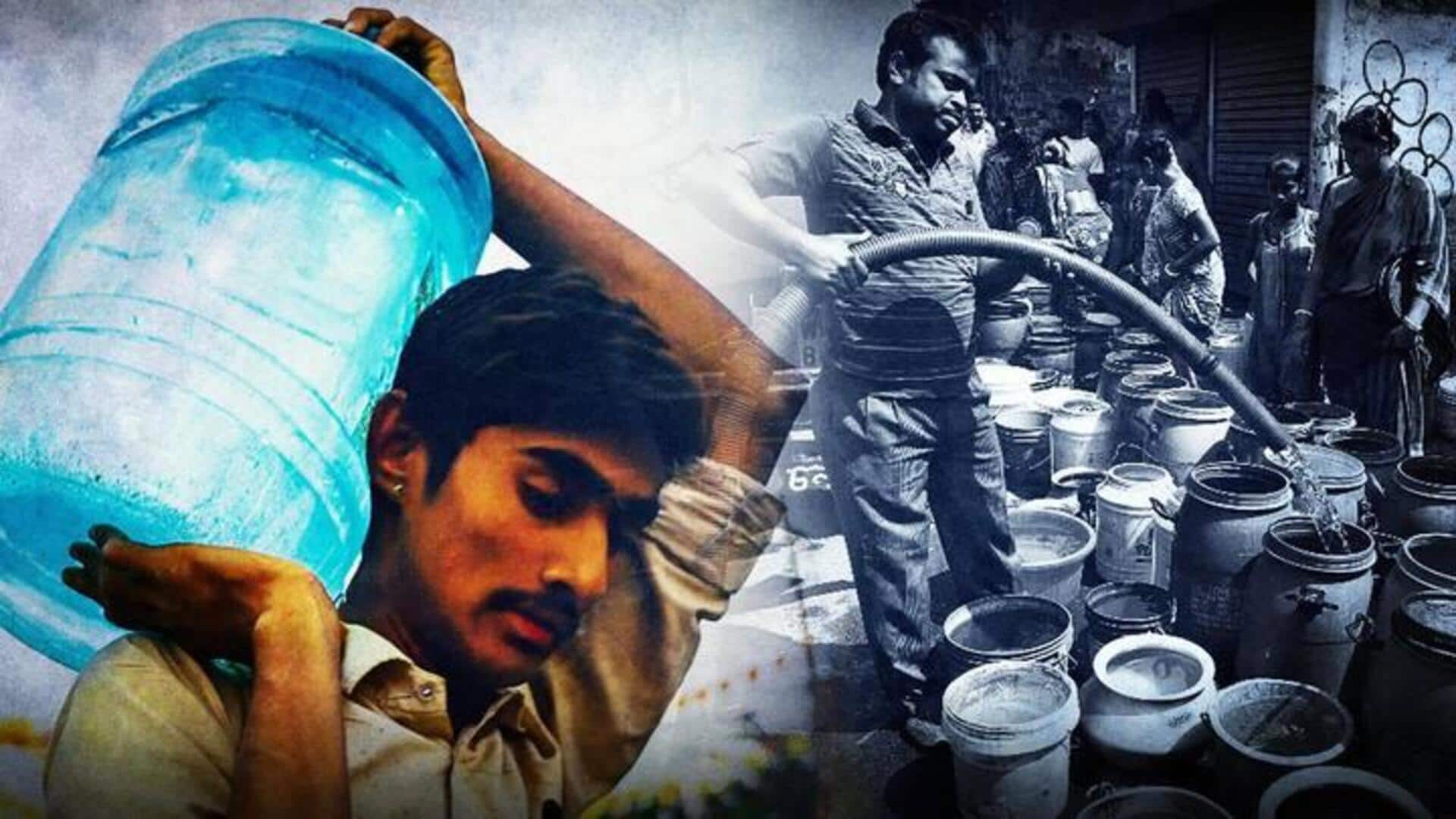
Bengaluru: 22 households fined for wasting Cauvery water
What's the story
Amid an escalating water crisis, authorities in Bengaluru have levied fines totaling Rs. 1.1 lakh on households for squandering the precious resource. The Water Supply and Sewerage Board (BWSSB) penalized 22 households with fines of Rs. 5,000 each for misuse of Cauvery water during a critical shortage. This action was prompted by complaints received on social media over non-essential uses of potable water, such as washing cars and watering gardens.
Context
Why does this story matter?
Bengaluru is grappling with a daily shortfall of 500 million liters—equivalent to nearly one-fifth of its total daily demand. The state government has said that out of the city's 13,900 borewells, 6,900 have dried up. Notably, this scarcity extends beyond Bengaluru to Karnataka and even the neighboring states of Telangana and Maharashtra. According to the Centre's estimates from 2018, over 40% of Bengaluru's population may lack access to safe drinking water by the end of the decade.
Begaluru's self sufficiency
BWSSB strives for Bengaluru's water self-sufficiency by July
Bengaluru's municipal board is striving to make the city water self-sufficient by July 1, focusing on three main aspects: water conservation, utilization of treated water, and rainwater recharge. BWSSB chairman Ram Prasath Manohar has urged citizens to report any breaches of the new water conservation regulations by reaching out to the board's call center. The crisis has also driven up vegetable prices in the city as well as cast uncertaininty over real estate prices.
Counteraction
Here's how BWSSB is planning to counter the crisis
The BWSSB has proposed to replenish the city's dried lakes with treated wastewater, which can be used for non-essential purposes instead of Cauvery water, currently used for drinking needs. This initiative will also aid in recharging the borewells ahead of peak summer. Guidelines have been issued to curb water misuse in the city. The southern division of the BWSSB is reportedly more rigorous in tracking water wastage and responding to residents' grievances compared to other divisions.
Aerators
BWSSB requires installation of aerators to save water
Furthermore, the municipal authorities have mandated the commercial establishments, apartments, restaurants, industries and other public areas to install aerators - devices that control water flow from taps. Those who fail to install aerators by March 31 will face a 50% reduction in their water supply and a fine of Rs 5,000. The BWSSB chairman has said that installing aerators can conserve between 60-85% of the total water used.
Holi
Bengaluru's water crisis affects Holi celebrations
The unprecedented shortage has also dulled Bengaluru's Holi celebrations, with the BWSSB banning the use of Cauvery and borewell water for activities like pool dances and rain dances. This directive was issued in response to several establishments planning pool parties and rain dances despite the prevailing water scarcity. Following this directive, numerous hotels swiftly removed 'rain dance' from their promotional materials.